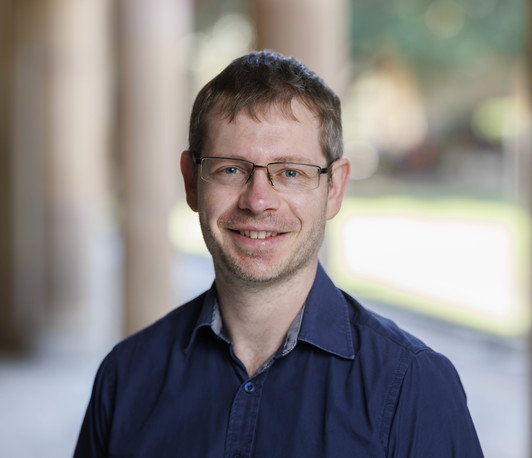How could we make scientific software FAIR?
- Date: Jul 19, 2024
- Time: 11:00 AM - 12:30 PM (Local Time Germany)
- Speaker: Steffen Bollmann
- Location: Max-Planck-Ring 11, MPI for Biological Cybernetics
- Room: Seminar Room + Zoom
- Host: Peter Dayan
- Contact: peter.dayan@tuebingen.mpg.de

Abstract: Despite the vital role of scientific software, it remains an overlooked part of research, often developed within short funding periods with little support for long-term maintenance. This results in software that is hard to discover and challenging to install. It also lacks interoperability across different computing systems, hindering its reuse and violating the FAIR principles - which advocate for scientific outputs to be Findable, Accessible, Interoperable, and Reusable. In this talk, I will present our attempts at this problem through the Neurodesk.org project.
Keywords: Reproducible Neuroscience, Neurodesk, Software Containers, FAIR, Docker
Bio: Dr Steffen Bollmann joined UQ’s School of Electrical Imaging and Computer Science in 2020 where he leads the Computational Imaging Group. The Group is developing computational methods to extract clinical and biological insights from magnetic resonance imaging (MRI) data. The aim is to make cutting-edge algorithms and tools available to a wide range of clinicians and researchers. This will enable better images, faster reconstruction times and the efficient extraction of clinical information to ensure a better understanding of a range of diseases. Dr Bollmann was appointed Artificial Intelligence (AI) lead for imaging at UQ’s Queensland Digital Health Centre (QDHeC) in 2023.
His research expertise is in quantitative susceptibility mapping, image segmentation and software applications to help researchers and clinicians access data and algorithms.
Dr Bollmann completed his PhD on multimodal imaging at the University Children’s Hospital and Swiss Federal Institute of Technology (ETH) Zurich, Switzerland.
In 2014 he joined the Centre for Advanced Imaging at UQ as a National Imaging Facility Fellow, where he pioneered the application of deep learning methods for quantitative imaging techniques, in particular Quantitative Susceptibility Mapping.
In 2019 he joined the Siemens Healthineers collaborations team at the MGH Martinos Center in Boston on a one-year industry exchange where he worked on the translation of fast imaging techniques into clinical applications.
Lab's webpage: https://mri.sbollmann.net/
Access to the meeting: Zoom Link